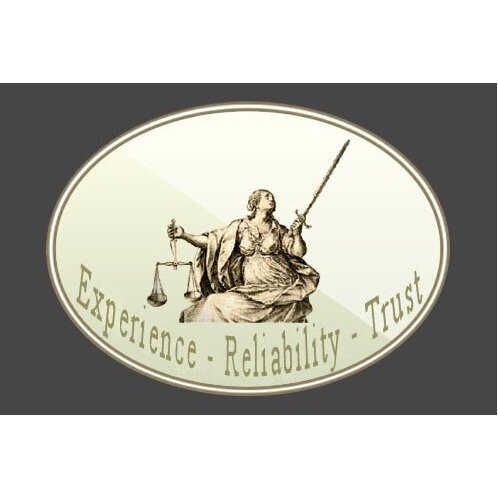Best Oil, Gas & Energy Lawyers in Pattaya
Share your needs with us, get contacted by law firms.
Free. Takes 2 min.
List of the best lawyers in Pattaya, Thailand
About Oil, Gas & Energy Law in Pattaya, Thailand
Pattaya, located in eastern Thailand, is part of a region where the oil, gas, and energy sectors play crucial roles in the local economy. The country's energy framework is primarily governed by national laws, but Pattaya's coastal position makes it strategically significant for international trading, logistics, and energy management. The energy industry in this region is diverse, involving electricity generation, renewable energies, oil, gas, and the regulatory oversight necessary to manage these sectors effectively.
Why You May Need a Lawyer
There are numerous instances in which you may require the assistance of a lawyer specializing in oil, gas, and energy law in Pattaya:
- Contractual Agreements: Legal professionals can help draft and negotiate contracts related to resource extraction, energy supply, and infrastructure development.
- Regulatory Compliance: Ensuring adherence to local and national regulations is crucial. Lawyers can guide you through these legal requirements, which include environmental impact assessments and safety standards.
- Dispute Resolution: Lawyers can assist in resolving disputes arising from operational issues, breaches of contract, or partnership disagreements through mediation or litigation.
- Permitting and Licensing: Legal advice is often needed to secure necessary permits and licenses for exploration, drilling, and production activities.
- Environmental Concerns: Energy-related activities must comply with environmental protection laws. Lawyers can provide advice on minimizing legal risks associated with environmental liabilities.
Local Laws Overview
The local laws in Pattaya, regarding oil, gas, and energy, are influenced by Thailand’s national policies and regulations:
- Petroleum Act of Thailand: This Act regulates the exploration and production of petroleum resources, establishing guidelines for concessions and royalty rates.
- Energy Industry Act: Enforced by the Energy Regulatory Commission, it oversees the operation of the energy industry, ensuring fair competition and reliable energy services.
- Environmental Quality Act: Prescribes standards for pollution control and environmental preservation critical for energy projects.
- Renewable Energy Development: The government supports policies encouraging the development of renewable energy sources, providing incentives for solar, wind, and biomass projects.
Frequently Asked Questions
What is the primary legal framework governing the oil and gas industry in Pattaya?
The primary legal framework is the Petroleum Act, which establishes the rules for petroleum exploration and production, including licensing and royalty arrangements.
Do I need a permit to start a renewable energy project in Pattaya?
Yes, permits and approvals from local authorities and the Energy Regulatory Commission are necessary to start renewable energy projects.
What type of contracts might a lawyer need to review in the energy sector?
Common contracts include joint venture agreements, production sharing agreements, supply and distribution contracts, and leasing agreements.
What are the typical environmental regulations applicable to energy projects?
Projects must comply with the Environmental Quality Act, including conducting Environmental Impact Assessments and adhering to pollution control standards.
Can foreign entities invest in Pattaya’s energy sector?
Yes, foreign investment is permitted, although it is subject to regulations regarding ownership and compliance with local laws.
How can disputes in the oil, gas, and energy industry be resolved?
Disputes can be resolved through negotiation, mediation, arbitration, or litigation, depending on the terms of the contractual agreements and the nature of the dispute.
Are there incentives for renewable energy projects in Pattaya?
Yes, the Thai government provides incentives such as tax benefits, subsidies, and technical support to encourage renewable energy projects.
What is the role of the Energy Regulatory Commission?
The commission regulates and supervises the energy sector to ensure efficient and fair service delivery, while promoting competition.
What measures are in place for environmental protection in energy law?
Developers are required to comply with environmental impact assessments, emissions controls, and conservation strategies to reduce ecological footprints.
How can I find a reliable lawyer for oil, gas, and energy matters in Pattaya?
It is advisable to seek referrals from industry associations or consult legal directories to find qualified energy law practitioners in Pattaya.
Additional Resources
Consider reaching out to the following resources for further assistance:
- The Energy Regulatory Commission (ERC): Provides legal guidelines and regulatory advice on energy matters.
- Ministry of Energy, Thailand: Offers resources and information on national energy policies and initiatives.
- Thailand Board of Investment (BOI): Provides support and incentives for foreign and local investment in energy projects.
Next Steps
If you need legal assistance in the oil, gas, and energy sectors in Pattaya, consider the following steps:
- Compile all relevant documents and information regarding your project or issue.
- Consult with a specialized lawyer in energy law to discuss your needs and assess your legal position.
- Engage with professional networks or industry associations for referrals and recommendations.
- Ensure thorough understanding and consideration of all legal requirements, potential liabilities, and strategic options before proceeding with any decisions.
Lawzana helps you find the best lawyers and law firms in Pattaya through a curated and pre-screened list of qualified legal professionals. Our platform offers rankings and detailed profiles of attorneys and law firms, allowing you to compare based on practice areas, including Oil, Gas & Energy, experience, and client feedback.
Each profile includes a description of the firm's areas of practice, client reviews, team members and partners, year of establishment, spoken languages, office locations, contact information, social media presence, and any published articles or resources. Most firms on our platform speak English and are experienced in both local and international legal matters.
Get a quote from top-rated law firms in Pattaya, Thailand — quickly, securely, and without unnecessary hassle.
Disclaimer:
The information provided on this page is for general informational purposes only and does not constitute legal advice. While we strive to ensure the accuracy and relevance of the content, legal information may change over time, and interpretations of the law can vary. You should always consult with a qualified legal professional for advice specific to your situation.
We disclaim all liability for actions taken or not taken based on the content of this page. If you believe any information is incorrect or outdated, please contact us, and we will review and update it where appropriate.















